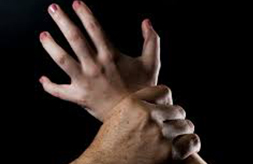DISORDERLY PERSONS OFFENSES AND PETTY DISORDERLY OFFENSES
2C Disorderly Persons NJ
What is a disorderly persons offense under the Law of New Jersey?
The 2C criminal code, enacted by the New Jersey Legislature, codifies all criminal offenses and created three (3) broad categories of criminal offenses, e.g., “crimes” (known as felonies in other states); “disorderly persons offenses” (known as misdemeanors at common law and in some other states); and “petty disorderly offenses”. N.J.S.A. 2C: 1-14(k), State v. Hamm, 121 N.J. 109, 577 A.2d 1259 (1990)
A disorderly persons offense is a criminal act or charge which does not rise to the level of a crime or felony. These matters originate in the municipal court in which the complained of act physically took place and are ultimately disposed of in that municipal court, N.J.S.A. 2C:2B-12-16, 17. However, municipal courts do not have jurisdiction to hear offenses that are indictable (crimes) and it is common that charges which constitute crimes (felonies) are sent up by the municipal court to the county prosecutor for review and evaluation. N.J.S.A. 2C:2B-12-18. County Prosecutors then decide whether to present the case to a grand jury (indictment) and prosecute the charges in the Superior Court of New Jersey as a crime or whether to downgrade the charges to a disorderly persons offense and remand (send back) the matter to the municipal court from which it originated for prosecution in the municipal court as disorderly persons offense. One important distinction—there is no right to a jury trial in the municipal courts—the trier of fact is a judge—also known as a “bench trial”. Also, do not make the mistake of thinking that disorderly persons offenses cannot cause you serious consequences, if convicted. A judge can impose jail time and you would get a criminal record which could disqualify you if you are seeking employment as a New Jersey school teacher, New Jersey law enforcement officer, New Jersey public official, if you plan on enlisting in the military, and/or obtaining employment with many private employers. Many won’t hire a convicted thief, marijuana user, and so on.
The extent of your exposure (imposition of penalty you are facing if convicted) for a disorderly persons offense is a monetary fine of up to one thousand dollars ($1,000.00) per count plus possible jail time of up to one hundred and eighty (180) days plus a criminal record which cannot be expunged for five (5) years in the normal course. N.J.S.A. 2C:43-8, N.J.S.A. 2C:43-3. There is a presumption of non-incarceration in disorderly persons offenses sentencing, although it is highly discretionary. Community service can also be imposed in lieu of jail—again highly discretionary. If the underlying offense is for possession of controlled dangerous substance (CDS), marijuana, etc…you can also lose your driving privileges (suspension/revocation of drivers license) for up to one hundred and eighty (180) days. However, mandatory probation can be imposed in lieu of jail. If the underlying offense is for shoplifting or theft a “no trespass order” can be imposed in addition to the foregoing banning you from entry into the merchant’s store for life.
Examples of the most commonly charged disorderly persons offense are:
Underage drinking N.J.S.A. 2C:33-15
Simple assault N.J.S.A. 2C:12-1(a) (Note that assault can also be a crime (felony)
Possession of CDS N.J.S.A. 2C:35-10(a)(Note that drug possession can also be a crime
Possession of paraphernalia
N.J.S.A. 2C:36-2
Lewdness N.J.S.A. 2C: 14-4 (note that lewdness can also be a crime)
Shoplifting N.J.S.A. 2C:20-11 (Note that shoplifting can also be a crime)
Theft of movable property
N.J.S.A. 2C:20-3(a) (Note that theft can also be a crime)
Bad check charge N.J.S.A. 2C: 21-5 (Note that a bad check can also be a crime)
Obstruction of the Administration of Law
N.J.S.A. 2C:29-1 (Note that obstruction can also be a crime)
Eluding/Resisting arrest
N.J.S.A. 2C: 29-2 (Note that eluding can also be a crime)
Hindering Apprehension
N.J.S.A. 2C:29-3 (Note that hindering can also be a crime
Petty disorderly offenses are punishable by a fine of up to five hundred dollars ($500.00), plus possible jail time of up to thirty (30) days, plus a criminal record. N.J.S.A. 2C:43-8
Examples of the most commonly charged petty disorderly offenses are:
Harrassment N.J.S.A. 2C:33-4
Disorderly conduct N.J.S.A. 2C:33-2
Defiant Trespass N.J.S.A. 2C:18-3
Bottom line? Do not assume that because any of these offenses are not called “crimes” or felonies that you cannot suffer needless devastating consequences if convicted. If you are charged with any of these offenses the best practice is to retain an experienced attorney immediately to defend your interests and obtain a downgrade or even a dismissal of the charges.


